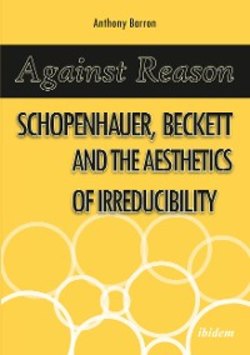Читать книгу Against Reason - Anthony Barron - Страница 14
Suffering and Solitude
ОглавлениеA comparative reading of the biographies of Schopenhauer and Beckett evinces many interesting parallels regarding experiences which proved formative for both writers in personal and authorial terms. Beckett recalled being precociously “aware of the unhappiness”68 around him; he had “little talent for happiness”69 as a child, while Schopenhauer was “always very melancholy as a youth.”70 Schopenhauer’s sensitivity to suffering rendered the religious tenets with which he had been indoctrinated utterly untenable:
When I was seventeen, without any proper schooling, I was affected by the misery and wretchedness of life, as was the Buddha when in his youth he caught sight of sickness, old age, pain and death. The truth which the world truly and loudly proclaimed soon threw off the Jewish dogmas that had been stamped on my mind, and the result for me was that this world could not be the work of an all-bountiful, infinitely good being but rather of a devil who had summoned into existence creatures in order to gloat over the sight of their anguish and agony. (MRIV, 119)
Such revelations, derived as they were from direct perceptions of the world rather than from detached impersonal theorising, did not, however, engender Buddha-like compassion for humanity. In terms which echo Beckett’s later discussions of his isolationist tendencies and his sense of “arrogant ‘otherness’” (LI, 258) as a young man, the following passage reveals some of Schopenhauer’s earliest misanthropic tendencies:
I have always kept myself from contact with others whenever in my youth I hankered after society; thus without reflection, in other words without knowing it, I recognised the paltriness of the rabble and the meaning of the words “you cannot be anything to me and I am nothing to you” which were present not as an idea but as a feeling . . . an individual nature bearing no resemblance to others is a burden in youth. (MRIV, 281)
Beckett recalled, “I wasn’t at all what you would call a sociable sort of boy. The main requirement was to be alone,”71 yet such propensities led to “misery & solitude & apathy” (LI, 258). However, Beckett may have derived temporary solace from Schopenhauer’s insistence that those who are artistically inclined are beings apart, impervious to the alleged charms of interpersonal engagement. In mentioning “the fatuous torments that [he] had treasured as denoting the superior man” (LI, 259), Beckett echoed a variety of Schopenhauer’s assertions that show how “the human of genius is in a higher degree a human being” (WN, 45). Schopenhauer’s portrayal of the blissful states which are the pre-eminent privilege of genius is tempered by his declaration that “suffering [is] the essential martyrdom of genius as such” (WWRI, 191) and that “great mental superiority isolates a person more than does anything else” (WWRII, 228). When, in Proust, Beckett observed that “art is the apotheosis of solitude” (PTD, 64), it seems that personal experience and philosophical reflection had deeply converged. During his tour of Germany between 1936 and 1937, which involved frequent trips to galleries and occasional opportunities to enjoy rapt absorption in pictorial masterpieces, Beckett was moved to confide to his diary the words “[h]ow I ADORE solitude.”72 However, isolation occasionally weighed rather heavily on him: “I am utterly alone (no group even of my own kind).”73 While Beckett would later become renowned for what Whitelaw described as his “Compassion; a general love of his fellow human-beings,”74 people who would have constituted Beckett’s “own kind” at that specific point in his life were likely to have been exceedingly rare. In an uncharacteristically forthright and poignant admission of his own interpersonal predicaments, Schopenhauer writes:
Throughout my whole life I have felt terribly lonely and have always sighed from the depths of my heart: “Now give me a human being!” But alas in vain. I have remained in solitude; but I can honestly and sincerely say that it has not been my fault, for I have not turned away, have not shunned, anyone who in his heart and mind was a human being. I have found none but miserable wretches of limited intelligence, bad heart and mean disposition. Goethe, Fernow, possibly F. A. Wolf, and a few others were the exceptions. (MRIV, 501)
As I intend to show in Chapter One, the associations between solitude, suffering, and genuine creative impulses were intimately allied in the minds of Schopenhauer and Beckett. Beckett’s profound and enduring admiration for Samuel Johnson was not based upon the “wit and wisdom machine” presented by Boswell; it was inextricably associated with Johnson’s existential predicaments, such as “the horror of annihilation, the horror of madness, the horrified love of Mrs Thrale” (quoted in JK, 270). While recognising that, “there can hardly have been many so completely at sea in their solitude,” Beckett acknowledged that Johnson had a “necessity of suffering” (LI, 529).
